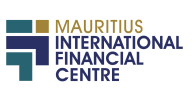Understanding the Benefits of Offshore Trusts
In the world of finance, offshore trusts have become a popular tool. They offer a range of benefits for high-net-worth individuals and investors.

But what exactly are offshore trusts? They are legal structures set up in foreign jurisdictions. They are designed to hold and protect assets.
The benefits of offshore trusts are numerous. They offer asset security, financial privacy, and tax efficiency. They also play a crucial role in estate planning and wealth succession.
However, offshore trusts are often misunderstood. They are surrounded by myths and misconceptions. This article aims to dispel these myths and provide a clear understanding of offshore trusts.
Whether you’re an investor, financial advisor, or simply interested in asset protection strategies, this guide is for you. Dive in to explore the world of offshore trusts and their benefits.
What is an Offshore Trust?
An offshore trust is a legal arrangement established in a foreign jurisdiction. It’s created when an individual, known as the settlor, transfers assets to a trustee.
The trustee then holds and manages these assets for the benefit of specified individuals or entities, known as beneficiaries. The key feature of an offshore trust is that it’s governed by the laws of the jurisdiction where it’s established, not the settlor’s home country.
Key Roles in an Offshore Trust: Settlors, Trustees, and Beneficiaries
In an offshore trust, the settlor is the person who creates the trust. They transfer their assets into the trust for protection or other purposes.
The trustee is the individual or entity responsible for managing the trust. They hold the legal title to the trust assets and are obligated to act in the best interests of the beneficiaries.
The beneficiaries are the individuals or entities who benefit from the trust. They have a beneficial interest in the trust assets but do not hold the legal title to them.
Primary Benefits of Offshore Trusts for Asset Protection
Offshore trusts offer several benefits for asset protection. They provide a legal structure that can safeguard assets from potential threats.
One of the main benefits is protection from creditors. If a settlor faces financial difficulties, the assets in the trust are usually beyond the reach of creditors. This is because the assets are no longer owned by the settlor, but by the trust.
Offshore trusts also offer protection from lawsuits. In many jurisdictions, trust assets are protected from legal claims, including divorce settlements and personal injury lawsuits.
Here are some key benefits of offshore trusts for asset protection:
- Protection from creditors and lawsuits
- Safeguarding assets for future generations
- Diversification of assets
- Protection against political and economic instability
- Confidentiality and privacy
Financial Privacy and Confidentiality with Offshore Trusts
Offshore trusts are known for their ability to provide financial privacy. They allow the settlor to maintain confidentiality over their financial affairs. This is particularly beneficial for individuals who wish to keep their wealth and asset distribution plans private.
In many offshore jurisdictions, the details of the trust, including the identity of the settlor and beneficiaries, are not publicly accessible. This ensures a high level of confidentiality.
However, it’s important to note that this privacy doesn’t equate to evasion of legal responsibilities. Trusts must still comply with all relevant tax laws and reporting requirements.
Offshore Trusts in Estate Planning and Wealth Succession
Offshore trusts play a significant role in estate planning and wealth succession. They provide a legal framework for the orderly transfer of assets to beneficiaries. This can be especially useful in complex family situations or when beneficiaries reside in different countries.
These trusts can also help mitigate the impact of inheritance taxes. In some jurisdictions, assets held in an offshore trust may not be subject to estate taxes. This can result in significant tax savings.
However, it’s crucial to seek professional advice when using offshore trusts for estate planning. The rules can be complex and vary greatly between jurisdictions.
Tax Efficiency and Offshore Trusts
Offshore trusts can offer significant tax advantages. In many jurisdictions, income generated by the trust may be tax-free. This can lead to substantial savings, especially for high-income individuals or corporations.
However, tax laws vary greatly between countries. It’s important to understand the tax implications in both the trust’s jurisdiction and the settlor’s home country. Non-compliance can lead to severe penalties.
Therefore, it’s crucial to seek professional tax advice when setting up an offshore trust. A well-informed decision can help maximize tax efficiency and avoid potential legal issues.
Choosing the Right Jurisdiction for Your Offshore Trust
Selecting the right jurisdiction for your offshore trust is a critical decision. Each jurisdiction has its own unique laws, regulations, and benefits. Some offer strong asset protection, while others provide tax advantages.
Stability is another key factor to consider. You want to choose a jurisdiction with a stable political and economic environment. This ensures the safety and longevity of your trust.
Lastly, consider the reputation of the jurisdiction. A jurisdiction known for its strong legal framework and adherence to international regulations can provide additional security and peace of mind.
The Process of Setting Up an Offshore Trust
Setting up an offshore trust involves several steps. First, you need to identify the assets you want to protect. These could be real estate, stocks, or other valuable assets.
Next, you need to choose a reliable trustee. This person or entity will manage the trust on your behalf. It’s crucial to select someone trustworthy and competent.
Finally, you’ll need to draft a trust deed. This document outlines the terms of the trust, including the roles of the settlor, trustee, and beneficiaries. It’s advisable to seek professional guidance during this process.
Myths and Misconceptions About Offshore Trusts
There are many myths surrounding offshore trusts. One common misconception is that they are only for the ultra-wealthy. In reality, anyone concerned about asset security can benefit from an offshore trust.
Another myth is that offshore trusts are illegal. This is not true. Offshore trusts are legal structures, provided they are set up and managed correctly.
Finally, some people believe that offshore trusts are impenetrable. While they offer strong asset protection, they are not immune to legal challenges. It’s essential to understand the limitations and operate within the law.
Legal and Ethical Considerations
When setting up an offshore trust, it’s crucial to consider the legal and ethical implications. It’s not a tool for evading taxes or hiding illegal activities. Misuse can lead to severe penalties.
It’s also important to respect the laws of the trust’s jurisdiction. Each country has its own rules and regulations. Non-compliance can result in legal issues.
Lastly, transparency is key. While offshore trusts offer privacy, they should not be used to deceive or mislead. Ethical use of offshore trusts can provide significant benefits without compromising integrity.
















